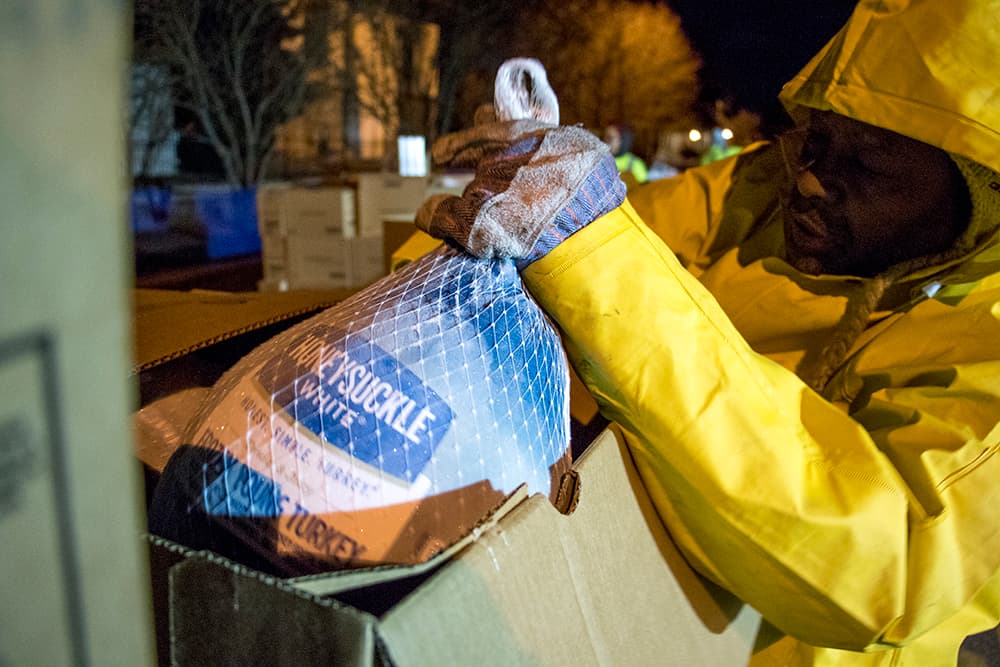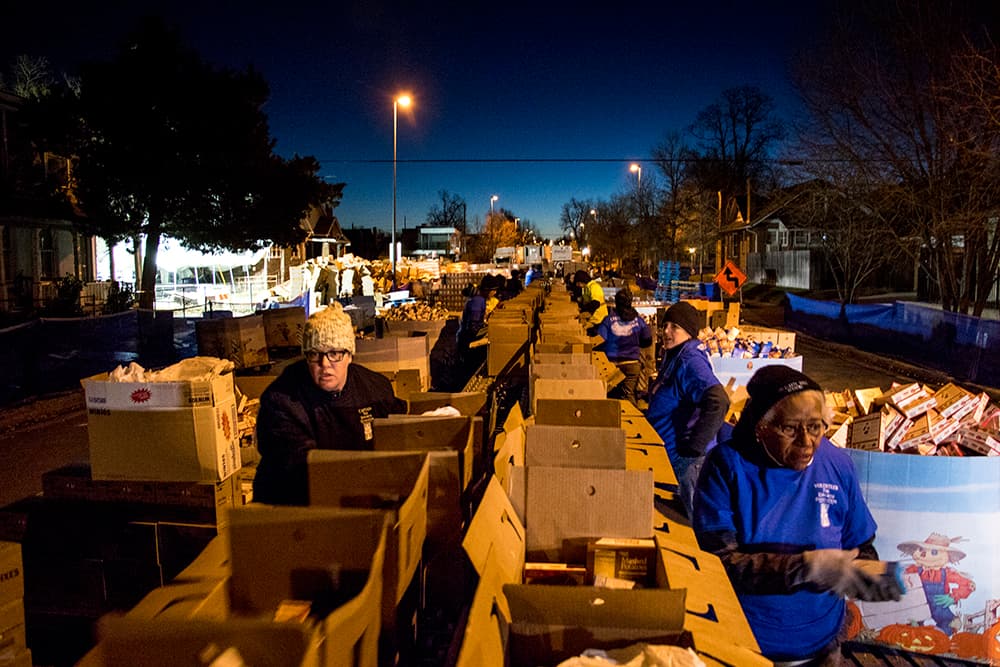
It's past midnight at the Epworth United Methodist Church and there's a calm before an army of volunteers begins assembling 6,500 Thanksgiving meals. There are semi-trailers lining Bruce Randolph Avenue and pallets of frozen turkeys, canned vegetables and mashed potato mix that will soon be distributed to families facing food insecurity. LJ Harker, the Epworth Foundation's grants and program development coordinator, is keeping warm inside her office.
Fourteen years ago, when the foundation began distributing turkeys, Harker was one of those people lining up for support. A single mom who was finishing her degree, she said, that box went a long way. Today, she says there are more and more new faces at Epworth's food pantry, but rising rent and changing demographics have closed many of the other resources that used to operate in the neighborhood.
"There used to be a bread bank off of Downing," she says. "They’re gone because a vape store moved in."
While the Epworth Foundation has managed to make ends meet since they began giving out Thanksgiving meals in 2003, they've witnessed many of their comrades in the fight against hunger vanish. They're now one of the last remaining food pantries in the neighborhood. It's a disappearing act that can be seen across the city, and it's got some advocates worried about future resources in the face of rising need.
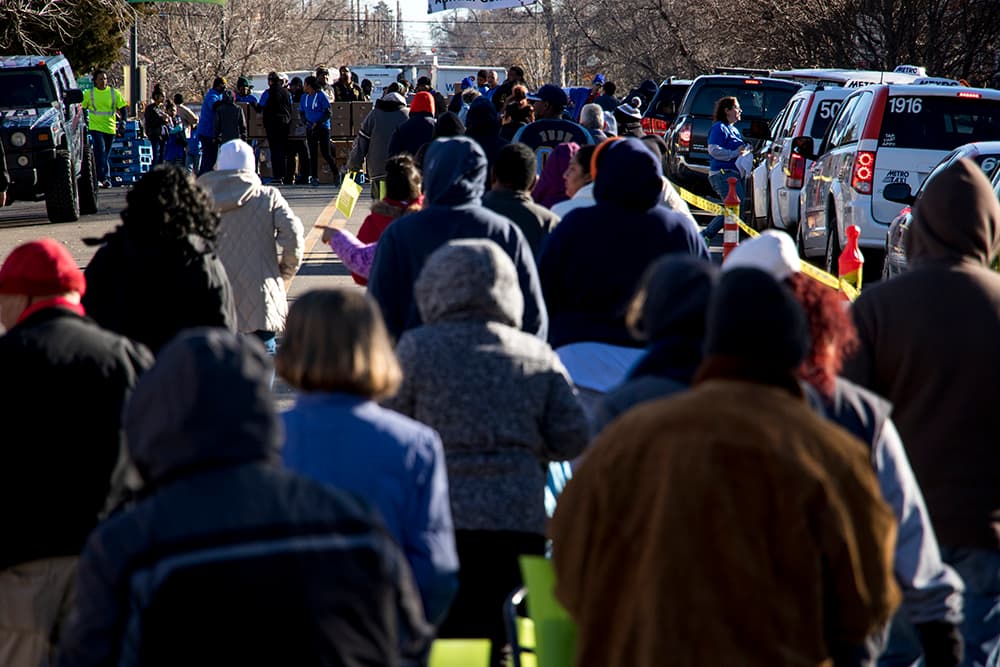
Growing city, growing hunger.
Feeding the hungry has been a part of the neighborhood's fabric since "Daddy" Bruce Randolph, for whom the street is named, began giving out Thanksgiving meals from his restaurant in the 1960s. The Epworth Foundation's Feed a Family event is an attempt to keep Randolph's tradition alive; they also operate a food pantry all year long.
King Hezekiah Harris is Epworth's former pastor who founded Feed a Family in 2003. He's lived in the area for 57 years and says he's watched Denver transform firsthand.
Feed a Family, he said, has always based its distribution on estimated demand. They gave out 3,500 Thanksgiving dinners when they began in 2003. The 6,500 meals this weekend, he says, is a sign that there are more people facing food insecurity today. It's better than it was at the height of the recession, when the foundation gave away nearly 10,000 turkeys, but he's still concerned.
"It is an economic indicator of what’s happening in this community," he said.
Looking beyond Cole, Kathy Underhill, CEO of Hunger Free Colorado, said Colorado's food insecurity is generally decreasing, but that the cost of living in Denver poses unique challenges to families and elderly residents. A study released this month pegged Denverites as more likely to spend more than a third of their income on rent today than at the height of the recession. That cost of living, Underhill told Denverite, "significantly exacerbates" the challenge of putting food on the table.
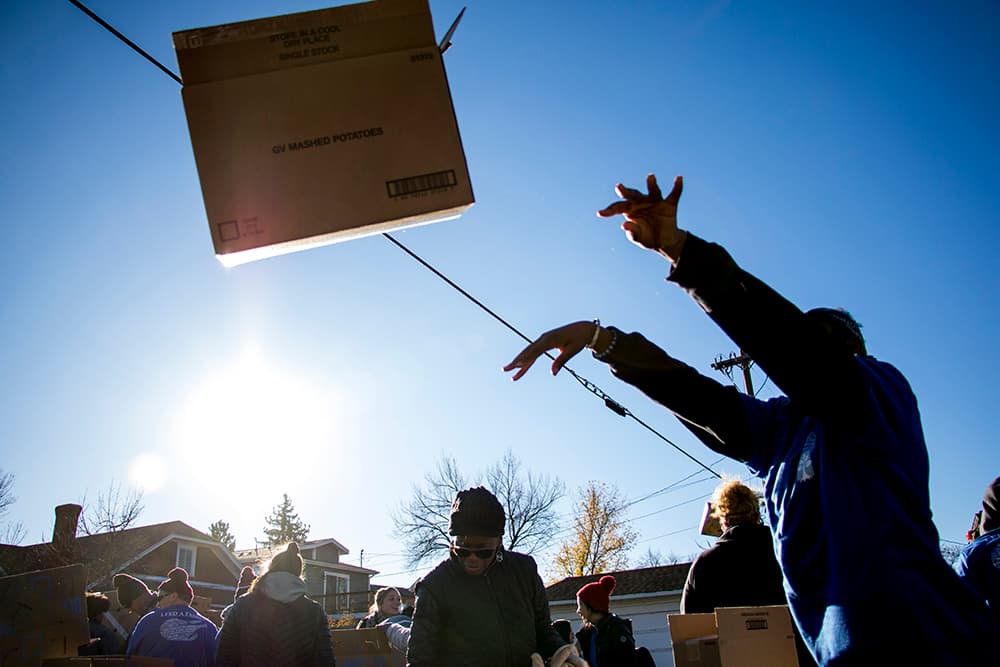
The same forces pressuring Denverites' budgets also challenge resource providers.
Those who are providing provisions are feeling increasingly pressured by rising operational costs, said Blake Angelo, Denver's manager of food system development. A focus group he facilitated for hunger relief groups heard a lot of concern from these organizations about their ability to survive.
"Some that have been around for a long long time have closed their doors,” Hunger Free Colorado's Underhill said. A few high-profile closures, like Denver Urban Matters on Colfax, have shaken folks who work on these issues.
Dale Flanders worked with the Broadway Assistance Center as they phased out their food pantry. The organization was forced to relocate to Littleton last year as funding dropped and costs rose, but the move didn't save them enough money to sustain their pantry operation.
"It was getting expensive," he said, and "it became pretty evident to me six months in that I really didn’t think they had a future from a purely fiscal perspective."
Flanders, a consultant, has worked both with nonprofits and funders. He said donors today are less interested in "short-term fixes" like pantries and are more likely to fund efforts that they perceive will have lasting effects.
For an organization asking for help paying market rent prices, even in Littleton, he said: "That’s a lot of money to give away free food."
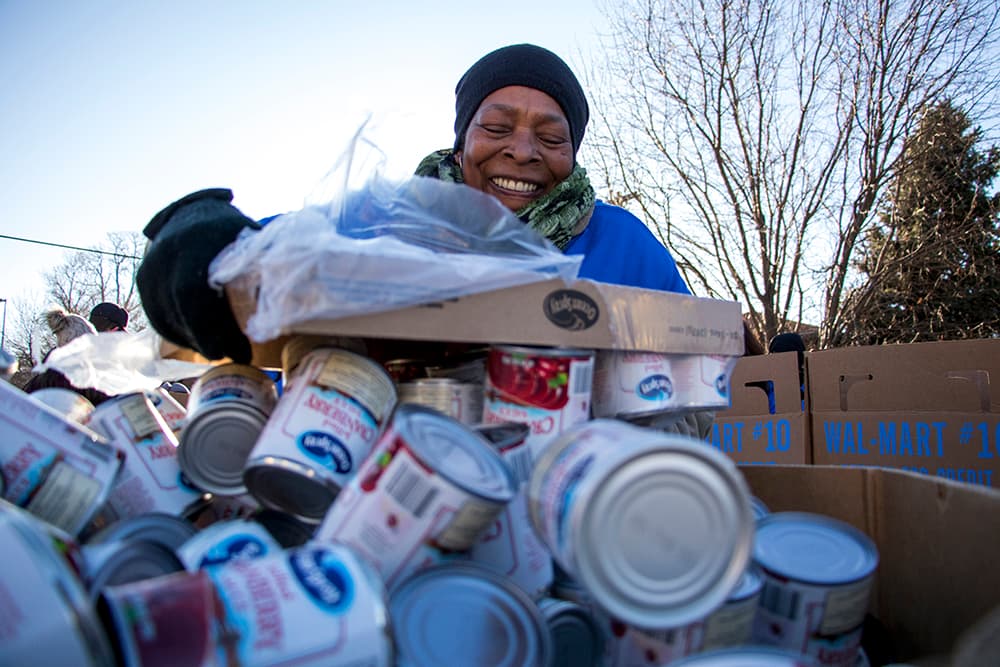
Does it even matter?
There's a feeling among people who work on these issues that the smaller quantity of food pantries in Denver does not exactly mean there are fewer resources out there.
"The number may not be as important as how well they’re serving,” Blake Angelo told Denverite.
For folks like Angelo and Flanders, a concentration of services might make them more efficient. Fewer organizations paying less rent might have a better chance of survival.
But Underhill said numbers do matter. More organizations mean more representation in Denver's neighborhoods, which means more accessibility overall.
"A food pantry is about more than just food," she said. "It’s an engagement tool" that helps providers get to know the community. "You get to learn about them. You notice that something is off or that someone is now pregnant," and then you’re talking about other services.
Underhill also said disappearing pantries in Denver are not exactly the real problem. Those who struggle most have been forced to move out to the suburbs, where resources have never been as prevalent.
This is true for many members of Epworth congregation and people receiving turkeys this weekend. While people lived nearby as recently as five years ago, Pastor King said, today many of them traveled from Denver's outskirts to attend the event.
After dawn broke and LJ Harker's teams of volunteers filled pallets with assembled boxes, the need became visible. By 9 a.m., hundreds of people eager for a turkey had queued around the block.
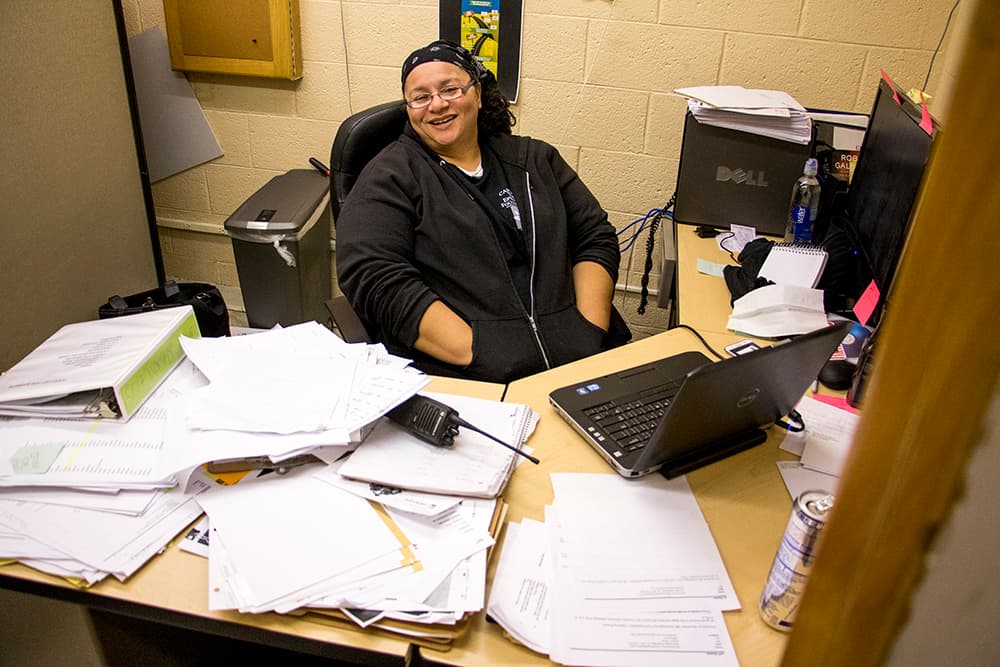
"It’s more than just a basket. It’s hope," Harker said. "We take that seriously."
The city's rapid changes, she said, only fuel their need to continue working.
"The poor are gonna be with us always," she said. "How you judge a society should be on how you treat the least of the people."

